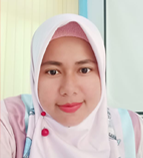Influence of Focus Sky Application-Based Information Service to Improve Problem Solving
DOI:
https://doi.org/10.57081/cs.v1i1.4Keywords:
Problem Solving, focus sky, Information ServiceAbstract
In the learning process, students acquire the ability to solve problems or what is called problem solving skills, so that students can manage and overcome problems in learning. At SMP N 17 Jambi City, problem solving skills need to be improved because the first school period is a good time to develop problem solving skills both in learning and in everyday life.Students' problem-solving skills can be improved by using information services. There are several methods that can be used and applied in the implementation of services, one of which is using electronic media, one of which is focus sky. In the form of an online-based slide show that presents the appearance of information services to be more attractive.The research carried out is a quantitative research with the type of experimental research in the form of Pre-Experimental in the Intecg-group comparison design. Intecg group comparison. The problem in this study is about improving students' problem solving skills, the researchers took 2 classes or groups as samples. Based on the sampling using purposive sampling technique in accordance with the criteria of the problem and obtained class VIII D as the experimental class and VIII C as the control class.Judging from the results of the post-test in the experimental group using the blended learning method, the average score was 83.00 and the post-test results for the group were at a value of 78.03 so that there was an increase of 3.97% in the experimental group. Then the sig. (2-tailed) i.e. 0.00 < 0.05, where Tcount 3.965 > 2.006 T table at degrees of freedom 64(66-2) at a confidence level of 0.05, it can be found that the average difference between problem solving abilities in student learning experimental group and control group. So that the hypothesis in this study is accepted. Ho is rejected and Ha is accepted which means that there is an influence of the blended learning method.
Downloads
References
Achmadi, T. A. (2015). The effect of the application of blended learning on the learning achievements of students of class XI machining engineering SMK Muhammadiyah 3 Yogyakarta. Thesis. Yogyakarta: Yogyakarta State University.
Al-Tabany, T. I.B. (2017). Designing Innovative, Progressive, and Konteksual Learning Models. Prenada Media.
Amidi, & Zahid, M. Z. (2016). Building Mathematical Creative Thinking Skills With E-Learning Problem-Based Learning Models. National Seminar on Mathematics X Semarang State University 2016, 586–594.
Arikunto, S. (2009). Research Management: Jakarta: Rineka Cipta. Anjaryani, WD.
Armei, A. (2001). Introduction to the Methodology of Islamic Education. Jakarta: Ciputat Press.
Bakar, A., & Luddin, M. (2010). Basics of Counseling Theory and Practice Review. Bandung: Citapustaka Media Pioneer.
Djamarah, S.B., & Zain, A. (2006). Teaching and learning strategies. Jakarta: Rineka Cipta, 46.
Djamarah, S.B., & Zain, A. (2010). Teaching and Learning Strategy, cet. 4th. Jakarta: PT Rineka Cipta.
Dwiyogo, W. D. (2018). Blended learning based on learning. Depok: RajaGrafindo Persada.
Firmansyah, B. H. (2015). Schoology-Based Blended Learning Development. Proceedings of the National Seminar on Educational Technology, 86–102.
Fitri, E., Ifdil, I., & Neviyarni, S. (2016). The effectiveness of information services by using blended learning methods to increase learning motivation. Journal of Educational Psychology and Counseling: Journal of Educational Psychology Studies and Counseling Guidance, 2(2), 84–92.
Gulo, W. (2008). Teaching and Learning Strategies (New Cover). Grasindo.
Hidayati, R. (2015). Career Information Services assist learners in improving career understanding. GUSJIGANG Counseling Journal, 1(1).
Jackman, W.M. (2018). Switching from traditional to blended learning at university level: Students' and lecturers' experiences. International Journal of Learning, Teaching and Educational Research, 17(5), 1–14.
Mbulu, J. (2001). Individualized teaching method approaches and media teaching guidelines for teachers and prospective teachers. Malang: Golden Eagle Foundation.
Prasetyoningrum, R., Sukardjo, J. S., & Nurhayati, N. D. (2014). The application of cooperative problem solving (cps) learning to increase creativity and learning achievement in the subject matter of salt hydrolysis of students of class XI IPA 1 even semester of Sma Negeri 2 Sukoharjo in the 2013/2014 school year. Journal of Chemical Education, 3(3), 105–110.
Prayitno, E. A., & Amti, E. (2004). Basics of guidance and counseling. Jakarta: Rineka Cipta.
Prayitno, W. (2015). Implementation of Blended Learning in Learning in Elementary and Secondary Education. Journal of Education, 6(01).
Purwoko, B. (2008). Organization and management of counseling guidance. Surabaya: Unesa University Press.
Princess, A. W. (2017). Improving The Learning Outcomes of Mathematics Students of Class VIII D Through a Think-Pair-Share Learning Model with LKS Small Steps at Raden Rahmat Balongbendo Junior High School. University of Muhammadiyah Surabaya.
Safitri, M. (2017). The influence of information services to improve the motives of high school students in Hinai. State Islamic University of North Sumatra.
Sugiyono, D. (2013). Educational research methods quantitative, qualitative and R&D approaches.
Sulasmono, B. S. (2012). Problem solving: Its significance, understanding, and variety. Satya Widya, 28(2), 155–166.
Sutja, A. D. (2017). Writing Thesis For Counseling Guidance Study Program. Mold to.
Downloads
Submitted
Published
How to Cite
Issue
Section
License
Copyright (c) 2022 Mega Larasukma Sulistiaty, Rasimin Rasimin, Affan Yusra

This work is licensed under a Creative Commons Attribution-NonCommercial-ShareAlike 4.0 International License.













